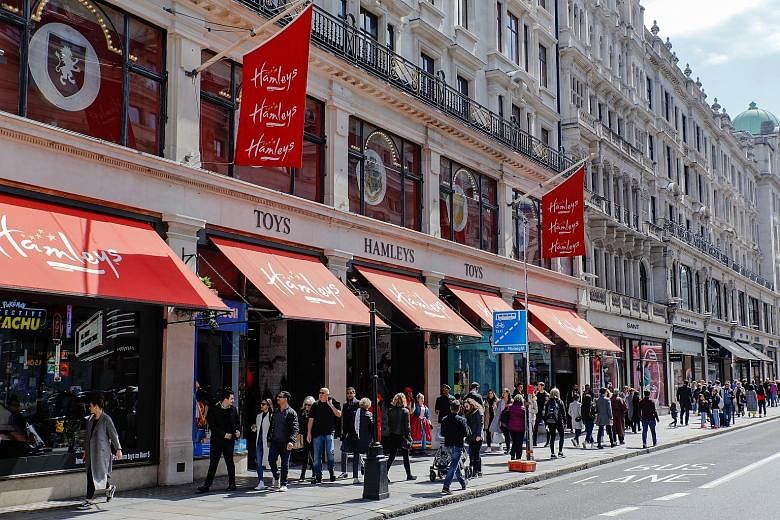For Reliance Industries, buying Hamleys is a dream come true. The group has not said much about its plans for the British toy store. Nor has Asia's richest man Mukesh Ambani who controls Reliance.
Whatever global aspirations they may have, achieving them would not be straightforward.
For buyers of British trophy retail assets, hopes of catapulting them to international domination do not always live up to their imagination.
Take Harrods, which was acquired almost exactly nine years ago by Qatar Holding. At that time, the buyer said it was considering whether to open a flagship Harrods outlet in Shanghai to serve South-east Asia in the same way the iconic store in Knightsbridge is a magnet to shoppers from Europe, New York and, increasingly, China.
While Harrods has developed a network of travel retail outlets, no Shanghai store has ever opened.
It is a similar picture at House of Fraser, which was bought in 2014 by Chinese conglomerate Sanpower Group. As the deal was struck, chairman Yuan Yafei trumpeted a plan to roll out 50 stores in China. Just one outlet opened in Nanjing at the end of 2016.
Hamleys has had several owners over the past decade or so who have all tried to extend it globally.
Iceland's Landsbanki Islands sold it to France's Ludendo Groupe in 2012 and China's C.Banner International, which exited last week, paid £100 million (S$177 million) for it in 2015. Their efforts have had mixed success. It operates 167 stores across 18 countries. Some 88 of those are in India under a franchise with Reliance.
Hamleys made a pre-tax loss of £9.2 million in 2017, the last available accounts, compared with a profit of £1.7 million in the year earlier. The loss was struck after restructuring costs and the expenses associated with exiting some loss-making stores and international markets. This underlines the potential pitfalls.
Achieving a global presence means finding new markets to capitalise on a famous name. This is not always easy. Though Indian retail is expanding rapidly, that is not the case in more mature regions, such as the United States, where Hamleys does not currently have a presence.
Add to this that the toy market is also intensely competitive. What is hot and what is not changes quickly and retailers must be on the right side of the trends.
And it is also intensely price-driven, as Amazon.com and supermarkets vie for sales.
Reliance stands a good chance of navigating these challenges, given that it already operates Hamleys stores in India as well as franchise operations for a range of other international brands.
It knows the chain and has retail skills. So that is a good start.
But even with its considerable experience, turning a trophy into a titan is not a given. BLOOMBERG
- Andrea Felsted is a Bloomberg Opinion columnist covering the consumer and retail industries. She previously worked at the Financial Times.

